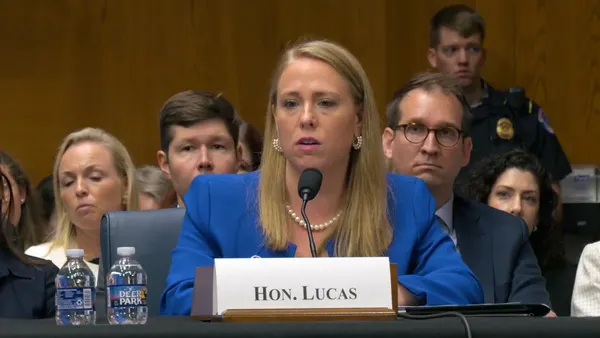A U.S. Equal Employment Opportunity Commission employee who alleged the agency discriminated against her based on her race, sex and national origin has received the green light to take her case to trial, court documents show (Kandan v. Lucas and EEOC).
The worker, an Indian-born U.S. citizen who works as an enforcement manager for the agency’s New Orleans field office, alleged she was passed over for a promotion to field director in favor of a Black male candidate who was “groomed” for the position by the district director, also a Black male employee.
In considering the EEOC’s Sept. 20 motion for summary judgment, Judge Eva Dossier at the U.S. District Court for the Eastern District of Louisiana found the plaintiff presented sufficient evidence for a reasonable jury to conclude her nonpromotion was discriminatory.
While the plaintiff had more years at the agency than the employee who was ultimately selected, the latter’s “equally extensive military background” did not make for “an apples-to-apples comparison,” Dossier wrote, noting his selection itself was not sufficient evidence.
Dossier noted the high bar courts need to clear for selection decisions themselves to be evidence, citing 5th U.S. Circuit Court of Appeals opinions from 2005 and 1988 laying out that “employment discrimination laws are ‘not intended to be a vehicle for judicial second-guessing of business decisions, nor ... to transform the courts into personnel managers.’”
Rather, Dossier pointed to comments the hiring manager made about the enforcement manager’s accent suggesting “he was unable to understand her,” and, while making the comments, an accompanying head “bobble” he made that is understood to reference her national origin and race. He also allegedly criticized her use of leave to visit India, particularly the travel distance and duration.
Dossier also found the hiring process raised questions, noting that while the candidate who was eventually selected was originally found not to be qualified, the hiring manager spoke to the HR employee in charge of the process and asked that he be considered. Additionally, interviews were scheduled while the enforcement manager was on leave in India, which may have negatively affected different elements of the interview, the judge said.
In its August filing requesting summary judgment, EEOC said the enforcement manager ranked the lowest of the three interviewed candidates and that the employee offered the job received the highest scores from each interviewer on the panel. It said the selecting official followed the scoring “consistent with his typical practice.”
A spokesperson for the EEOC said the commission does not comment on personnel matters.
EEOC has faced several lawsuits in recent months. In late July, for example, an LGBTQ+ advocacy organization sued EEOC for allegedly refusing to enforce federal workforce protections for transgender workers. And in August, a New Mexico school district asked a court to block a discrimination charge from the agency that it deemed a “fishing expedition.”
Both cases are still working their way through the courts.














